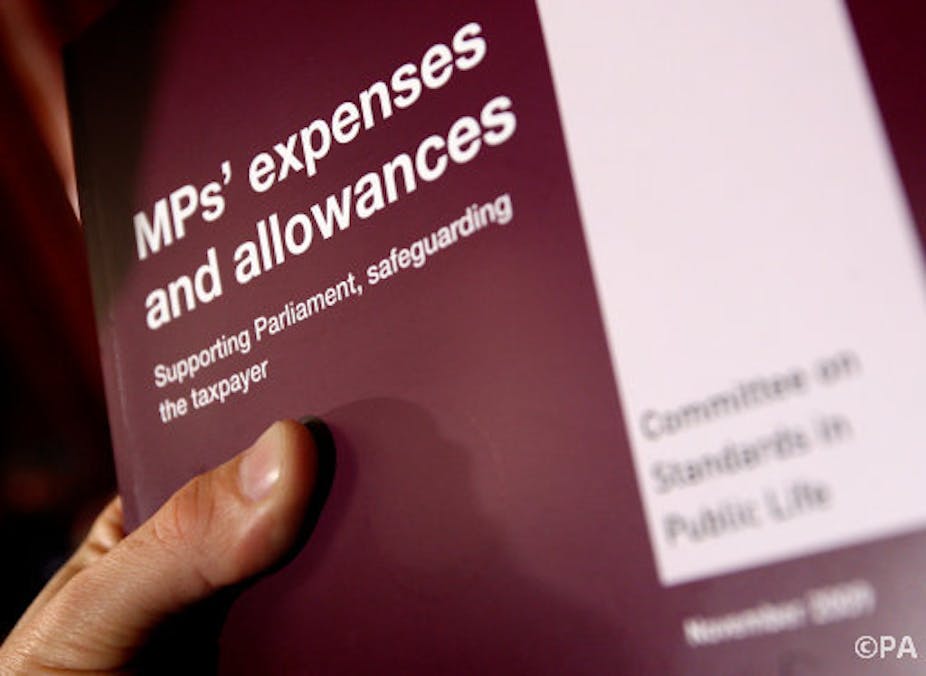“Meaningless”, “a stitch-up”, “a breathtakingly cynical attempt to convey an impression of democratic reform” – this was how Conservative MP Zac Goldsmith reacted to his own government’s announcement in the Queen’s Speech that ministers would, after all, be introducing a recall of MPs Bill before the 2015 election.
Goldsmith introduced a recall bill of his own in 2012, which got little traction and died a lonely legislative death. It would have allowed constituents to get rid of an MP in whom they have lost confidence for whatever reason – a provision variously labelled true, genuine, full or total recall.
Its author would clearly take issue with Alan Renwick’s view that it is “sensible” to restrict the right of recall to cases where an MP has already been judged guilty of serious wrongdoing by their parliamentary peers. Indeed, Goldsmith might well see Renwick’s concern that “total recall … would sit uneasily with our parliamentary democracy” as more commendation than critique.
After all, it was the revelations of MPs’ rampant abuse of parliamentary expenses that opened this whole lamentable chapter in our recent parliamentary history. Tailoring a delayed and watered down version of recall to suit our elected representatives, rather than their voters, would be the ultimate confirmation that even after five years, many of them really still don’t get it.
Throw ‘em out
Recall is an instrument of direct democracy for holding elected politicians to account. “Fully participatory recall” means that the voters who elect someone to public office have the right to initiate and vote for their removal between scheduled elections and for any reason. It sounds like a laudable principle, but it’s not just a principle: this is essentially how it operates in, for example, around 30 American states, some German Länder, Japan, Switzerland, and British Columbia.
It’s undeniably democratic – but the very idea scares the pants off many of our MPs, who were never going to vote for too pure a version of it. More seriously, despite what some idealistic reformers like Goldsmith might have imagined, there was never any real chance of their being asked to.
From the outset, the coalition’s whole approach to recall has been inadequate, in two distinct ways – one unfortunate but understandable, the other just depressing.
What was unfortunate was the government’s failure to take advantage of the fact that the politicians whose accountability the recall procedure is best suited to secure are those who have personal executive powers at their disposal, like the elected mayors and Police and Crime Commissioners (PCCs) who formed a core part of the Coalition Agreement (if ultimately a rather embarrassing one).
Both these imported posts would always have been hard to sell to a disengaged electorate. But from my own limited involvement with both issues, I am convinced that people’s genuine concerns about the accountability of these powerful new office-holders could be largely mollified if a credible and participatory recall mechanism were imposed.
It may have been inevitable that recall of MPs would get legislative priority. But it would not have been difficult for the government to publicise its intention that elected mayors and PCCs would be subject to a similar regime.
Half-baked
More depressing is the hash the government made of its initial attempt to legislate for MP recall. Looking at both the Conservative and Lib Dem 2010 manifestos as well as the Coalition Programme commitment, whatever Nick Clegg protests now, it was clear from the start that the most we would be offered was “mixed recall”. Voters would be allowed “to force a by-election where an MP is found to have engaged in serious wrongdoing and having had a petition calling for a by-election signed by 10% of his or her constituents”.
But the people charged with determining “serious wrongdoing” would of course be the accused’s fellow MPs. Our confidence in our shamed parliamentarians was therefore apparently to be restored not through “fully participatory recall”, but what at best amounted to “late-in-the-day participatory recall”.
The details were fleshed out in December 2011 in a recall of MPs draft bill. This effort started by viewing recall as an instrument of discipline, rather than of democracy. Then, without attempting to clearly define “serious wrongdoing”, it treated it as more concerned with prison sentences than with the behaviours that really outrage ordinary voters: abuse of position, breach of parliamentary privilege, nepotism, racism, cheating, lying and indolence.
All the bill really did in the end was serve as a target for pre-legislative scrutiny. And some of the critical attention it received was pleasingly robust, like that of the Political and Constitutional Reform Committee:
Under the government’s proposals, constituents themselves would not be able to initiate a recall petition. The circumstances that would trigger a petition – if an MP received a custodial sentence of 12 months or less, or if the Commons resolved that there [had been] “serious wrongdoing” – are so narrow that petitions would seldom, if ever, take place.
We are not convinced these proposals will increase public confidence in politics. Indeed, we fear that the restricted form of recall proposed could even reduce confidence by creating expectations that are not fulfilled.
And that, more or less, is where we are today. The depressing truth is that, despite the zeal of reformers like Zac Goldsmith, the hope we might someday be able to quickly and democratically rid ourselves of our more despicable public servants still seems disappointingly faint.

